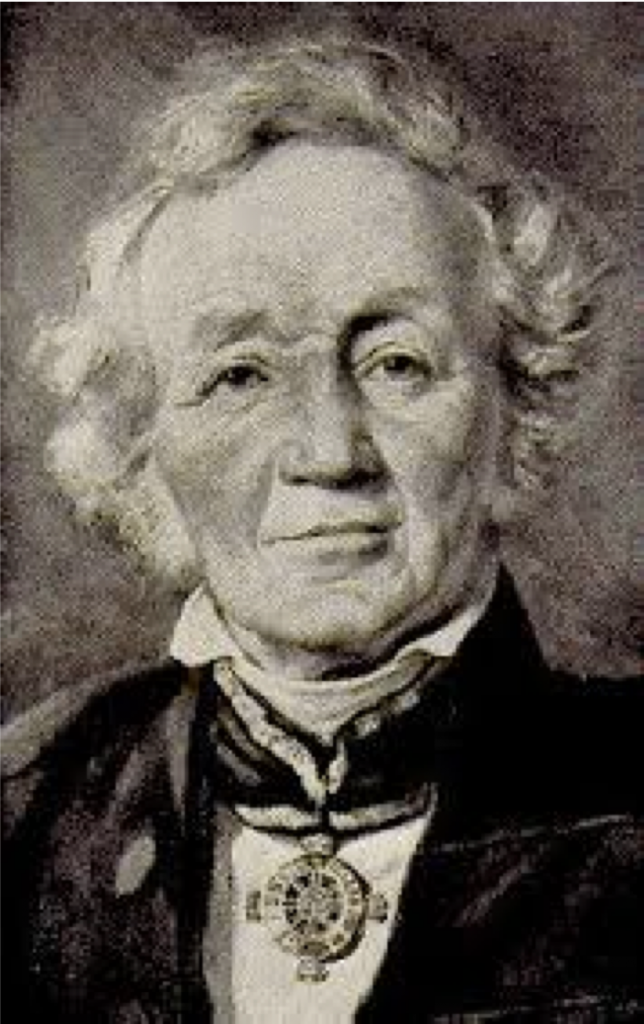The truth of ethics

Why can’t they just let Him be?
March 13, 2020
On euthanasia
March 19, 2020“What is hateful to you, do not do to your neighbor. This is the whole Torah, all the rest is commentary.”

Here we have the Golden Rule of ethics, surfacing in many cultures all over the world ever since antiquity. Confucius is known for it. Jesus calls it “the essence of the Law and the Prophets.” Without abiding to it, says Mohammed, you are not a true believer. The above version, from the Talmud, emphasizes its absolute, central status. The worldwide dispersion of the Golden Rule gives reason to the assumption that among humans there is a universal element in the approach to ethics.
However, the ‘commentary’ given across history shows that concrete elaborations of morality differ widely. One reason is that general moral rules need to be applied to specific situations emerging under specific conditions. A second reason are the needs both to receive and to offer more detailed normative guidance or even to enforce normative moral systems. A third reason is the urge to find the foundational justification of morality as such – or to deny that such justification exists.
My preliminary description of morality is: a set of common values and norms that people use to judge actions. There are three classical ways to enhance common values. One is to develop personal virtues, a second is guidance by norms and a third is to focus on their consequences for human well-being.
The foundations of ethics
The reciprocity called for in the Golden Rule is a classic example of duty ethics. Just like the Ten Commandments and their Jewish, Christian and Islamic versions and elaborations, the Golden Rule was widely seen as a divine command. This implies that foundational justification of such rules depends on the existence of God.

Confucius based his ethics not on divine command, but on the cultivation of personal virtues. Plato, in his Meno dialogue, makes Socrates and Meno come to the conclusion that virtue as such cannot be defined. In his later work he acknowledges the existence of universal morality to be pure speculation. According to Aristoteles, the goal of life is mental self-sufficiency and morality rests on a combination of knowledge, practical wisdom, experience and taking the virtuous lives of great men as examples. A quality of virtue ethics is that it avoids the issue of foundational truth; it doesn’t state what people should do, but how people should be. A downside is its inability to define virtue as such.
In the 13th century, Thomas Aquinas made an effort to combine divine command theory with Aristotelean virtue ethics, holding that the Bible was not the single source of morality. God gave man instincts and rationality to successfully interact with nature as driven by God-made natural law. Humans seek the seven basic goods, such as life, procreation, seeking God and living a social life. To each of these Aquinas attached both a prohibition – don’t kill – and a positive injunction – protect life.
In 17th– and 18th-century, European thinkers wanting to deny divine command theory tried to find a secular justification for morality. Moral rationalist solutions mostly relate to the foreseeable social consequences of behavior, creating consequentialist or utilitarian theories. Others, the moral sentimentalists, held that morality is of emotional nature, where ‘moral’ equals ‘advantageous’ or ‘pleasant’. David Hume pointed out that it is wrong to make claims about what ought to be, based on statements about what is, clearly distinguishing descriptive from prescriptive statements. Immanuel Kant however stuck to duty ethics: his categorical imperative was essentially an elaboration of the Golden Rule, justified not by divine command, but by pure practical reason. All of these theories have in common that morals by no means rest on metaphysical truth.

In the 19th century, the emergence of historicism became a new threat to those believing in eternal moral truths. Leopold von Ranke made clear that history is no criminal court; moral rules can not be universally applied to distant ages and cultures. A second blow to eternal morality was Charles Darwin’s evolution theory, giving a reason to think that morality is just one of our means to survive.
Moral epistemology
The essential quality of knowledge is not that it is true – see Knowledge and Truth –, but rather that it requires access to facts we can interpret using our cognitive competences. Thus, the question about the possibility of moral knowledge shifts from the existence of moral truths to the existence of moral facts. But if we define fact as something that is known to be true, we won’t get any further. In moral epistemology, truth is like a scalpel dissecting the body of ethics into a labyrinth of isms. I shall only mention the basic distinctions.
Moral cognitivism holds that morality can be expressed by propositions that are either true or false. Moral realism makes these propositions mind- and culture-independent, but there are two forms. Either these propositions relate to empirically knowable facts – ethical naturalism –, or they can be known intuitively, a priori: ethical anti-naturalism. Both of them hold a strict concept of knowledge as true. Moreover, statements from ethical anti-naturalism say nothing about reality and are therefore unable to explain differences between moral systems.
Moral non-cognitivism denies that ethics consists of genuine propositions: terms like ‘good’, ‘just’ or ‘wrong’ do not refer to reality outside the human mind – moral relativism. According to moral projectivism these terms mainly express attitudes that develop into desires. The downside of these views is their claim that the human mind is distinct from reality, claims that originate either in theological theories about the soul and/or in dualistic philosophies of mind.

Mind and morality?
Statements about the foundational justification of morality are closely connected to the philosophy of mind. Since the 20th century, minds are mostly seen as part of the whole of physical reality, a position known as monism, which is opposite to Cartesian and other types of dualism. Although the brain facilitates the mind, this does not imply that mental processes can be described in a physical way. Daniel Dennett believes that in the mind there is something we call the self, the narrative center of our existence. The human self is not only capable of making self-conscious representations of reality and to reflect on them, but also of imagining actions and their consequences, both for the self and for others. Making representations and reflecting on them however is by no means strictly rational; it is driven by beliefs, desires and emotions as well.
Morality refers to human behavior, either of the self or of others, so, either of individuals or of groups. Moral virtues and values are collectively rationalized, standardized patterns characterizing behavior. Although often formulated as nouns, moral virtues and values are in fact predicates. ‘Honesty’ is the same as ‘being honest’ or ‘showing honest behavior’; ‘order’ is an evaluation of collective orderly behavior. Moral virtues and values cannot be applied to people or institutions independently of their behavior. Values not referring to behavior – ‘health’, ‘wealth’, ‘beauty’ – are not moral values.
Since behavior actually takes place in reality, there is no essential difference between calling a person honest or the table brown; both are representations of a reality. There would neither be any difference if honesty and brownness were seen as universals or as classes of particular individuals – see The metaphysics of truth. Neither “honest’ nor ‘brown’ are sharply defined categories, implying that opinions may differ in specific cases. The question: “Where do values (or virtues) come from?” is not different from the question “Where do colors come from?” And it is neither different from “Where does truth come from?”, since also ‘truth’ is just one of the ways to express a predicate: ‘true’. All of these are used to share beliefs; their purpose is communication.
Moral norms
Moral virtues and values – as predicates – differ from colors in one respect. Others may believe my brown table to rather look green or grey or red, but these beliefs will not need propositional justification. But discussing the degree of honesty of a person – or an institution, or a situation – does imply propositional justification, for two reasons. First, moral judgments surmise knowledge of facts and are at least partly rational. If we see somebody kill someone, our moral judgment is defined by the killing’s rational context: it may be emotionally shocking, but also justified because of war, self-defense, insanity, passion or a death penalty. Second, in moral judgments, we compare behavioral observations to general moral rules in the same way physical observations are compared to physical laws. These general moral rules we call moral norms.
The big difference between physical laws and moral norms is that physical laws are descriptive, whereas moral norms can be used as prescriptions as well, and they always prescribe behavior. Across cultures, prescriptions vary widely, depending on economic, social, political and cultural conditions. This gives reason for moral relativism, the idea that morals are mind- and/or culture-dependent. The Inglehart–Welzel cultural map of the world shows that under better economic conditions, self-expression values and secular-rational values are favored over survival values and traditional values. It looks as if humans would like their universal desires for self-expression and secular rationality to come true, if only the actual conditions would permit them.

If such is really the case, moral universalism is the more plausible position. By their nature, humans are social animals. Like other animals, they hate to get killed or to have their food, partners or children stolen from them. But their powers of self-conscious representation, reflection and imagination enable them to see such behavior in a rational context, to place themselves in someone else’s shoes and to see the consequences of behavior in the perspective of society as a whole. From the concept of elementary wrongs in a rationalized social context, the logical step to the principle of reciprocity from the Golden Rule is not a big one.
But maybe we should extend this reciprocity to the relation between the individual and the group she belongs to. This relation is guided by mutuality and responsibility; since the individual is protected by the moral order, she is responsible for the upholding of that order.




